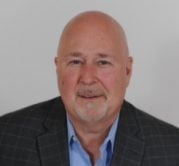Is your credit union focused on doing great work?
“High achievement always takes place in the framework of high expectation.” ~ Charles Kettering

Across the past few months I’ve witnessed something very interesting. It started when I changed my thinking and made a decision to refocus my work. I encourage you to read the full story here, because I think it could impact your work as well.
Re-Discovering the Desire to Do Great Work
Briefly, my decision was driven by one desire—to spend as much of my time as possible delivering great work for the people I served. That means using my talents in a way that allows me to impact the success of individuals and organizations I serve.
When I made the commitment and did the underlying work to refocus my business, something started to change. It was subtle at first, but it has grown to be pervasive and the impacts are becoming more visible every day—not just in my business, but in the work my clients are doing on their own.
You see, as I began to verbalize my desire to do great work, I started confirming with clients that they were committed to doing the same. And then the phrase began to pop up in the conversations about projects, planning sessions, and coaching programs.
I soon found myself rethinking every action I was taking—subjecting it to my own great work test to confirm that I was focusing on doing what I do best, and engaging others in doing what they do best. And I started reminding my clients that the goal was not just to get it done, but to do it in a way that changed things for the future.
If You Position It Correctly, Great Work Can and Will Be Achieved
And then it was all brought home to me when I had the privilege of working with a client team on a new project. Here’s the story:
A cross-functional team was convened for a three-day intensive workshop. The team members had been chosen intentionally and invited to attend the workshop, but given minimal information about the nature of the project (something that I would argue was a key step—they had no expectations and no chance to be swayed one way or the other about the chances for success).
When they assembled the meeting was kicked off in an upbeat fashion and they were informed they had been ‘chosen’ to be part of a team that was going to be asked to lead a very special and important project (again the wording was important—being chosen is different than being nominated or assigned, and being part of a team was a key positioning phrase for the effort).
Next the team learned about the scope of the project, the envisioned outcome, and the primary goal. They all heard the same presentation at the same time from the same person (there was no room for misinterpretation, and there was no personal/departmental spin or bias from the person sharing the information).
Across the next three days the team engaged in doing the hard work of mapping the project and creating an action plan that they believed in and owned. Then they stepped out of their comfort zones and presented the plan to a team of leaders who were beyond impressed with the work that had been done.
The lesson? If you position it correctly, great work can and will be achieved. It happens for a very simple reason: People will always live up to (or down to) the expectation that has been set for them.
Here how can you use this lesson to increase your impact?
Here are five questions you can ask yourself that might reveal opportunities where you can refocus and commit to doing great work. I encourage you to ask them, answer them, and then take action to lead those you engage with to doing truly great work. And I promise you will be both surprised and delighted with the changes it makes for you, your team, and your credit union.
- Does my team know that I am committed to doing great work and willing to make the difficult decisions to eliminate anything that stands in the way of us doing that?
- Do I speak about the work we are doing in a way that makes people see it as important, valuable, and necessary, or do they just think I want it to be done?
- When I convene a team to work on a project, do I set the bar high and make sure they know I believe they can and will produce great work?
- Do I believe in my people, know they can do great work, and get out of their way to let them do it?
- Am I coaching my team to perform at their best every day and recognizing and celebrating what they do right (or criticizing what they didn’t do well)?





